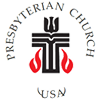Last Sunday we gathered around the table. We prayed in. And we started our check-in, remembering that as we had read Luke 23:26-38 we were trying to figure out what exactly Jesus meant in verse 34 when he says, “Father, forgive them, for they know not what they do.” (or “Father, forgive them.”)
We understood this as Jesus talking to God and asking for God to forgive “them.” But who is “them?” A few thoughts were offered, all those who were actively involved (in any way) in getting Jesus crucified. All those who had perhaps participated in getting Jesus to the place where he could be crucified. Maybe just all those who didn’t know who Jesus was at the time — all those who didn’t believe that Jesus was fully God (divine) & fully man (human). And others offered all those — all of creation — who’s sin Christ was carrying to the cross. All those with sin — without regard to the bounds of any specific era. Or maybe all those who have sinned, regardless of belief, regardless of age, any who have sinned.
It feels as though the final words on the cross that Christ would offer would be for all of us — would be expansive in scope (as his life, death & resurrection is expansive in scope….as GRACE & LOVE are expansive in scope) and not limited to the specific time and people who happened to be contemporaries of Christ. An understanding of expansiveness of course can lead to the second question(s), is Jesus asking anything of us in saying, “Father, forgive them, for they know not what they do.”? One bold voice named that it seems that Jesus is inviting us to forgive others…people didn’t know who Jesus was (& he was perfect!) & look what happened to him…so how should we expect people to treat us? (the answer is, not well…so we should forgive — if Christ can use strength and energy to ask God’s forgiveness aloud while dying on a cross — perhaps we can in our daily lives too…)
AND there was so much conversation. Again the theme of what can we forgive, though recognizing we can always pray & ask God to forgive. Though we didn’t stay to near on the emphasis or the theme of our continuing forgiveness — instead choosing to talk more about challenging & hard to understand themes, though ones that feel less personally vulnerable. Conversations around the cross…which eventually led us back to scripture to continue the story taking the time to consider, Luke 23:39-43
39 One of the criminals who hung there hurled insults at him: “Aren’t you the Messiah? Save yourself and us!”
40 But the other criminal rebuked him. “Don’t you fear God,” he said, “since you are under the same sentence? 41 We are punished justly, for we are getting what our deeds deserve. But this man has done nothing wrong.”
42 Then he said, “Jesus, remember me when you come into your kingdom.[a]”
43 Jesus answered him, “Truly I tell you, today you will be with me in paradise.”
Footnotes:
Luke 23:42 Some manuscripts come with your kingly power
We only were able to briefly consider this new (next) selection of scripture. But noticed how there is an understanding of right and wrong, an understanding of deserved punishment and undeserved punishment, an understanding while being next to Jesus of his innocence. There also seems to be some sort of understanding somehow of the king nature of Jesus, with a request to be counted in the kindgom of which Jesus reigns. (Though one might wonder, seeing a king treated as a criminal what his kingdom might look like.) And there is this understanding of paradise that would be experienced “today” — how do we understand that? What about hell? Again Jesus, what are you saying?
Our homework this week though is a little different. It is a reflective exercise designed to invite us to go under the layers of the Biblical text. We are to imagine ourselves as Criminal 1. Who is he? Who would be a modern equivalent of this man? What is his story? What do you notice about the whole scene, and about his life as you imagine yourself as this Criminal (1). And then — consider yourself as Criminal 2, asking yourself the same questions — understanding the crucifixion from the cross of Criminal 2. Think as to why the criminals have to be present, why Jesus does not die alone, why this dialogue is important, why they are named only as Criminal 1 and Criminal 2.
And yes, there is a BONUS question for this week too…it is this: Can we be with Christ in Paradise, now (right now!)? If we can, what would that include and look like for you?
Excited to hear what God has been revealing to all…
~ Rev. Sabrina Slater
